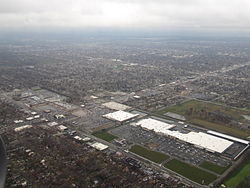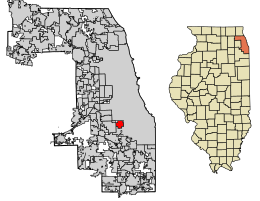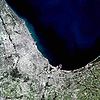
Bridgeview is a village in Cook County, Illinois, United States. It is located approximately 15 miles (24 km) southwest of the Chicago Loop. As of the 2020 census, the village population was 17,027.
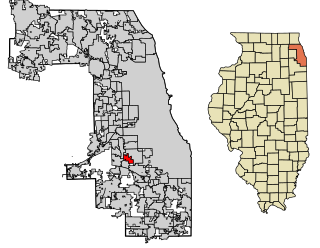
Chicago Ridge is a village in Cook County, Illinois, United States. Per the 2020 census, the population was 14,433.

Hanover Park is a village in Cook and DuPage counties in the U.S. state of Illinois, a suburb of Chicago. The population was 37,470 at the 2020 census. Ontarioville is a neighborhood within the village.
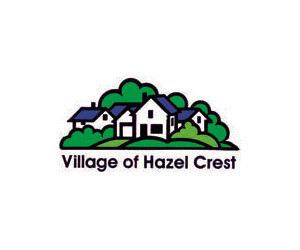
Hazel Crest is a village in Cook County, Illinois, United States. The population was 13,382 at the 2020 census.

Hickory Hills is a city in Cook County, Illinois. Located principally in Palos Township, it is a suburb of Chicago. The population in 2020 was 14,505.
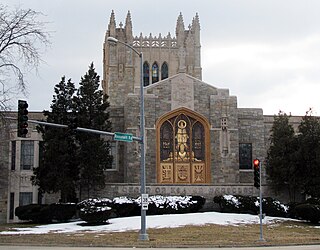
Hillside is a village in Cook County, Illinois, United States. As of the 2020 census it had a population of 8,320.

Markham is a city and a south suburb of Chicago in Cook County, Illinois, United States. The population was 11,661 at the 2020 census.
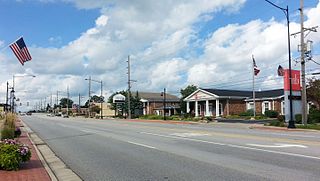
Oak Forest is a city in Cook County, Illinois, United States. The city is out 24 miles (39 km) south-southwest of downtown Chicago in Bremen Township. Per the 2020 census, the population was 27,478.

Oak Lawn is a village in Cook County, Illinois, United States. The population was 58,362 at the 2020 census. Oak Lawn is a suburb of Chicago, located southwest of the city. It shares borders with the city in two areas but is surrounded mostly by other suburbs.

Palos Hills is a city in Cook County, Illinois, United States. It is a southwest suburb of Chicago. The city was established in 1958 and had reached a population of 18,530 in the 2020 census. It is the home of Moraine Valley Community College as well as Amos Alonzo Stagg High School.

Palos Park is a village in southwestern Cook County, Illinois, United States. Per the 2020 census, the population was 4,899.

River Forest is a suburban village adjacent to Chicago in Cook County, Illinois, United States. Per the 2020 census, the population was 11,717. Two universities make their home in River Forest, Dominican University and Concordia University Chicago. The village is closely tied to the larger neighboring community of Oak Park. There are significant architectural designs located in River Forest such as the Winslow House by Frank Lloyd Wright. River Forest has a railroad station with service to Chicago on Metra's Union Pacific West Line.

Tinley Park is a village in Cook County, Illinois, United States, and is a suburb of Chicago. Per the 2020 census, the population was 55,971, and it is among the fastest-growing suburbs southwest of Chicago. In 2009, BusinessWeek named Tinley Park the "best place in America" to raise a family.

University Park is a village in Will County with a small portion in Cook County in the U.S. state of Illinois. It is a south suburb of Chicago. The village is one of the region's few planned communities; it was developed in the 1960s as Wood Hill, then Park Forest South, and finally University Park. Governors State University was established in the village in 1969. The village population was 7,145 at the 2020 census.
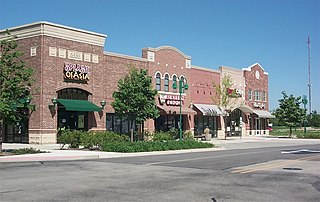
Woodridge is a village in DuPage County, Illinois, with small portions in Will and Cook counties, and a southwestern suburb of Chicago. Per the 2020 census, the population was 34,158.

Worth is a village in Cook County, Illinois, United States, a suburb of Chicago. Per the 2020 census, the population was 10,970.
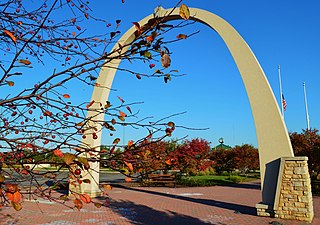
Carol Stream is a village in DuPage County, Illinois, United States, and a suburb of Chicago. It was incorporated on January 5, 1959, and named after the daughter of its founder, Jay Stream. Per the 2020 census, the population was 39,854.
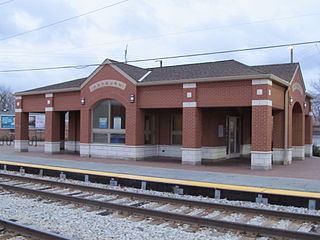
Ashburn, one of Chicago's 77 community areas, is located on the south side of the city. Greater Ashburn covers nearly five square miles. The approximate boundaries of Ashburn are 72nd Street (north), Western Avenue (east), 87th Street (south) and Cicero Avenue (west).

The Plaza, formerly known as Evergreen Plaza, was a shopping mall in Evergreen Park, Illinois, United States. It was legally organized by Arthur Rubloff, who is also credited with coining the phrase "Magnificent Mile" describing the upscale section of Michigan Avenue north of the Chicago River to Oak Street. Rubloff secured the funding for the Evergreen Plaza from the Walgreen family who lived nearby in Beverly, Chicago. The Evergreen Plaza operated from 1952 to 2013. It featured over 120 stores, as well as a food court. The mall closed in 2013 and became an outdoor shopping center. Anchors include Whole Foods Market, and Burlington Coat Factory.

Richard H. Lawler, M.D. led a surgical team at Little Company of Mary Hospital in Evergreen Park, Illinois, that performed on June 17, 1950, what Time magazine described as "the first human kidney transplant on record." With surgeons James West and Raymond Murphy, Lawler transplanted a kidney from a just-deceased female patient into the abdominal cavity of a 44-year-old woman with polycystic kidney disease. The surgeons described the groundbreaking operation in an article in the Journal of the American Medical Association (JAMA).
